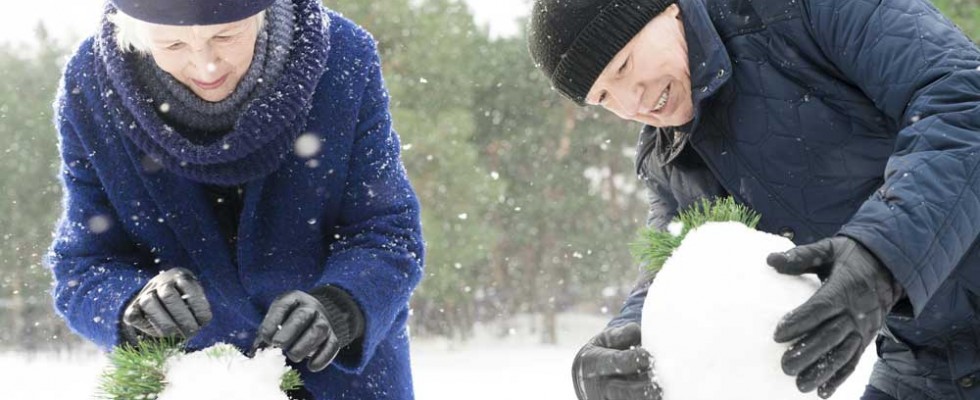
For people of all ages that live with incontinence—and their caregivers—it’s not just the weather that’s frightful during the winter. The season presents a new set of challenges in order to remain clean dry, and comfortable. However, as a caregiver, there are a few steps to take in order to make the winter season delightful for you and your patient.
Winter Care Tips for Incontinence
While incontinence is mainly associated with seniors, it affects people of all ages with a variety of conditions. These include spinal cord injuries, post-surgery conditions, paraplegia, diabetes, and a host of others. About 1 in 10 children also suffer from incontinence. So, how exactly can you help?
1. Maintain A Regular Schedule
The winter months tend to be full of breaks from school and time off associated with holidays, but unfortunately, incontinence doesn’t take breaks. Maintain your patient’s regular bathroom schedule for a typical day so they will be on track once they return to a normal routine.
The best times for bathroom breaks include when waking up, after eating a meal, before bed, as soon as you arrive somewhere, and just before leaving.
Note: It is important to use the bathroom before going outdoors or going on another outing, since inclement weather often causes traffic delays and vigorous activities in the snow can exacerbate fatigue and incontinence.
2. Get Outdoors
When the days are shorter and colder it may take more motivation to get outside. While staying indoors as much as possible seems like a good idea, limited sunlight leads to reduced vitamin D. This could increase the risk of depression and feelings of isolation. Many incontinent patients already experience some sense of isolation as they limit social activities due to the fear of having an accident.
However it is important to note that:
- When there is snow on the ground getting around outside safely and keeping the body warm takes up a considerable amount of energy. Strenuous activity such as snow shoveling, snowman building, and walking through heavy snow increases stress on the bladder.
- People tend to drink less fluid when the cold weather hits, especially if they are hoping to reduce the risk of bladder leaks. But, perhaps counterintuitively, this can actually make incontinence symptoms worse by irritating the bladder. Make sure your patient stays hydrated by sipping fluids continuously throughout the day.
Also, avoid slippery areas and wear proper shoes with good traction. And, wear layers because staying warm is important as feeling cold could cause the bladder muscles to tense. But being able to remove layers easily is important to avoid overheating, and also helps when an unpredictable bladder leads to unexpected or frequent trips to the restroom.
3. Be Prepared for Inclement Weather
It’s the time for winter storms. In the case of a power outage, make sure your patient has enough bottled water, canned food, and a safe source of heat until conditions improve. Wet wipes are also essential for allowing patients to clean themselves if they can’t bathe on their own.
It’s also a good idea to have plenty of disposable briefs, underpads, pull-ups and other preferred incontinence supplies on hand. With insurance coverage, many people receive a shipment monthly, but it is a good idea to have a backup stash on hand as well.
Connect with a local community program that will check on elderly patients in the event of inclement weather. They can provide regular updates and may even shovel snow from their driveway to offer them easy access to get outdoors.
4. Prevent Dry Skin
Because the winter months tend to be less humid, there is an increased risk for dry skin, rashes, and irritation that may lead to infections.
Prevent irritation and excessive dryness by:
- Using a barrier cream to protect the skin;
- Changing your patient as soon as an accident occurs;
- Gently patting the skin dry after bathing;
- Avoiding hot showers or baths, as increased heat could pull moisture from the skin—use warm water instead; and
- Using a humidifier in the rooms your patient frequents to add moisture to the air.
Note: When changing and cleaning an incontinent individual, always wipe from front to back to avoid spreading bacteria.
5. Enjoy Winter Beverages In Moderation
In the winter people frequently take breaks from their regular diets to enjoy sweets and treats, but it’s important to enjoy them in moderation to prevent adding stress to the digestive system and bladder.
People may gravitate toward a hot cup of coffee when it’s cold out, but its caffeine and acidity can increase pressure on the bladder. Caffeine is a diuretic so beverages such as hot chocolate or sodas should be enjoyed in moderation, as well. Holiday cocktails such as hot toddies are also more popular in the winter, but alcohol is another source of stress for the bladder.
There is no reason to exclude these items forever. Just be careful not to overdo them in order to enjoy social gatherings and travel without worrying about having an accident. They say moderation is the key to lasting enjoyment, and during this season, taking things step-by-step can be the difference maker between maintaining a healthy and productive routine. With a little extra planning and care patients can enjoy all the fun and cheer winter brings—and none of the blues.
Mica Phillips is the director of urology at Aeroflow Healthcare. Visit aeroflowurology.com
